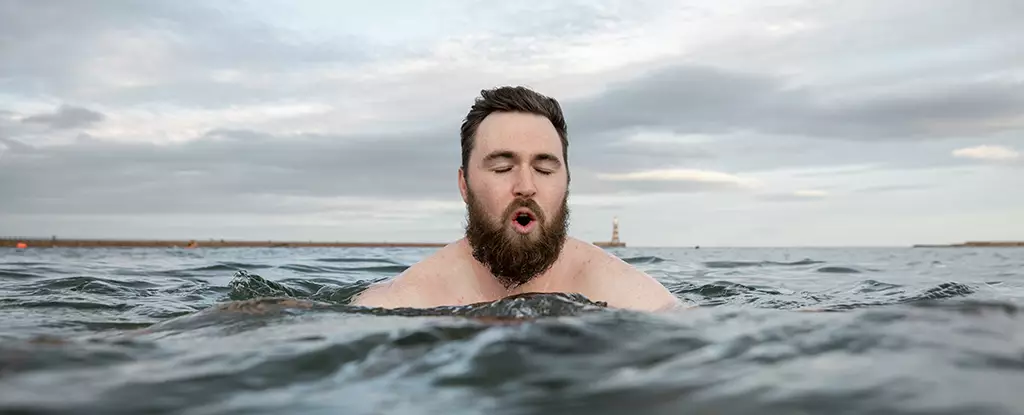If you’ve ever tiptoed into the frigid embrace of cold water, you’re well aware of the jolt it sends through your body. It’s an exhilarating experience—one that often leaves a mark on your memory. But beyond that first icy plunge lies profound potential for benefits that science is only just beginning to uncover. A recent study out of the University of Ottawa has popped open the lid on the surprising effects of cold water immersion, revealing that this uninviting habit might actually trigger positive changes at a cellular level.
The sensation of cold water rushing over the skin activates a cascade of bodily responses. Initially, it throws us into a chaotic frenzy of distress as our bodies grapple with the shock. However, as researchers put to the test, this initial discomfort might be the precursor to a remarkable phenomenon: improved autophagy. Through their study, they showed that after just a week of exposure to 14°C (57.2°F) water, participants exhibited enhanced cellular recycling processes. This means that, while the temperature may initially wreak havoc, the body adapts, converting stress into a form of resilience and regeneration.
Autophagic Adaptation: The Silver Lining?
Daily dipping in cold water may well serve as a cellular tune-up, as posited by the researchers. Physiologist Glen Kenny expressed amazement at how swiftly the body adjusts to these shocks, suggesting a promising avenue for enhancing our responses to environmental stressors. This could serve as a powerful ally in combating age-related diseases, presenting cold exposure not merely as a daring thrill but a remarkable preventative strategy.
The study observed not merely an increase in autophagy—often viewed as the body’s cleaning service—but also a decline in not-so-favorable activities like apoptosis, the programmed cell death that can lead to tissue loss and aging. Initially, the chaos produced by the cold resulted in cellular dysfunction, but the body’s resilience emerged stronger with time. Through this lens, it becomes apparent that cold water is a hostile environment that our bodies can train to withstand, potentially translating into long-term health benefits.
Limitations and Real-World Applications
However, while the results are tantalizing, it would be remiss not to acknowledge the study’s limitations. With only ten young male participants, the findings raise questions about their generalizability. We must ask ourselves whether these insights hold true across different demographics—older individuals, women, various lifestyle habits. Furthermore, the research was conducted under controlled conditions akin to a laboratory experiment. Real-world cold water encounters are far messier, influenced by air temperature, wind, and the myriad variables present in nature.
Previous research hints that our physiological responses to cold air could diverge significantly from those to cold water. Judging the benefits of consistent chilly baths against spontaneous plunges into icy lakes presents further complexities that warrant thorough exploration. It’s clear that while exciting, this field of study requires much deeper investigation before heralding cold exposure as a universal panacea.
The Collective Chase for Wellness
Ultimately, what emerges from the frosty depths of this research is a compelling narrative—one that aligns with a broader societal push towards holistic health solutions. In an era increasingly critiqued for its sedentary lifestyle and rampant stress, practices like cold water swimming represent more than just a radical experience; they epitomize a growing awareness of our need to adapt, endure, and rejuvenate. While it’s merely a piece of a larger wellness puzzle, the notion that cold water could provoke a symphony of beneficial cellular reactions presents a thrilling prospect.
Sure, the initial discomfort may make the practice seem counterintuitive; however, embracing such elements could very well lead to a robustly resilient generation. Our shifting relationship with environmental stressors, coupled with an expanding understanding of our biological responses, holds the potential to redefine self-care. As we courageously navigate the chilly waters, one might find there’s more than just icy shock; it could be a refreshing jolt towards a longer, healthier life.



Leave a Reply